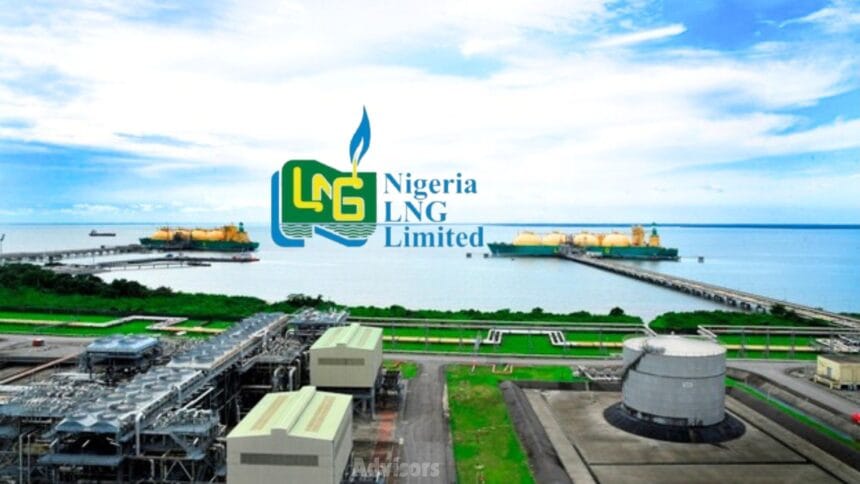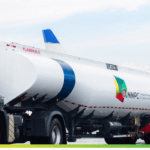Oredola Adeola
Nigeria LNG Limited (NLNG), one of Nigeria’s most important economic drivers, recently celebrated 35 years of incorporation and 25 years of production in 2023.
Over the years, the company has grown from a visionary dream into a globally competitive force in the liquefied natural gas (LNG) industry.
Since its incorporation in 1989, NLNG has achieved a series of key milestones that underscore its impact on Nigeria’s energy sector.
That incorporation laid the foundation for what would become a major player on the global LNG stage.
However, it wasn’t until 1996 that the company commenced the construction of its plants, a move that set the wheels in motion for its first major export in 1999.
The early 2000s marked a period of rapid growth and expansion for NLNG. In September 2000, the company commissioned its facilities, ushering in a new era of large-scale LNG production.
This was followed by a series of firsts, including the export of its 50th LNG cargo in April 2000, its first LNG spot cargo in May 2000, and the first condensate cargo in April 2001.
By June 2003, NLNG recorded its first shipment of liquefied petroleum gas (LPG), further diversifying its product portfolio and increasing its impact on both domestic and international markets.
In the same year, the company started its LPG facility and signed a monumental $16 billion loan agreement for the expansion project known as NLNG Plus.
In December 2006, NLNG celebrated the export of its 1000th LNG cargo, a testament to its steadily growing export operations.
In May 2008, Nigeria achieved another milestone as a Nigerian, for the first time, was appointed to lead NLNG as Managing Director.
That action, marked a pivotal moment in the company’s history, signifying its maturity and the growing role of Nigerian professionals in leading the LNG industry.
By October 2009, NLNG celebrated 10 years of successful LNG and natural gas liquids (NGLs) production.
The following year, in October 2010, the company reached another historic achievement by exporting its 2000th LNG cargo.
NLNG’s commitment to production efficiency and operational excellence was further evidenced in December 2012, when it recorded its highest annual cargo output, producing 333 cargoes in that year alone.
In January 2014, the company reached the 3000th LNG cargo export mark, reflecting the steady growth of its operations and the global demand for its products.
Its expansion efforts culminated in the export of its 4000th cargo in May 2017, further cementing its role as a global leader in the LNG market.
In 2019, NLNG made a groundbreaking decision to invest in Train 7, a move that would increase the company’s production capacity by over 30%.
This investment was followed by a series of record-breaking achievements. That year, NLNG produced its highest annual quantity of LNG at 218 million tonnes (MT) and loaded 213 MT of LNG, setting a new standard for the company.
The company’s 2019 achievements coincided with the celebration of 20 years of successful LNG and NGL production, a significant milestone that underscored the company’s importance to both Nigeria’s economy and the global energy sector.
In 2020, NLNG exported its 5000th LNG cargo, a major accomplishment that reinforced the company’s operational strength and export capacity.
That particular milestone was followed by another significant event in May 2021, when NLNG commissioned its Corporate Head Office in Port Harcourt, a symbol of its enduring presence and commitment to Nigeria’s industrial and economic development.
One of the most important milestones in NLNG’s recent history came in June 2021, when the groundbreaking ceremony for Train 7 took place.
Train 7 is a landmark project that will further boost Nigeria’s LNG production capacity and create thousands of jobs.
As of February 2023, the project had already reached 65% completion, setting the stage for NLNG’s next era of growth and influence.
Advisors Reports’ further check showed that the company’s steady growth and technological advancements have solidified its position as a cornerstone of Nigeria’s oil and gas industry, with Train 7 projected to increase capacity further.
NLNG’s operations have been critical in reducing gas flaring, one of the most pressing environmental challenges Nigeria has faced for decades.
NLNG has played a pivotal role in tackling the long-standing issue of gas flaring in Nigeria.
In addition to its economic impact, NLNG has shown a deep commitment to social development and environmental sustainability through substantial investments in initiatives that benefit both local communities and Nigeria as a whole.
By capturing and processing associated gas from oil extraction, NLNG has played a crucial role in reducing gas flaring, a wasteful and environmentally damaging practice.
This shift has not only conserved valuable natural resources but also aligns with global efforts to combat climate change.
Over the years, NLNG has demonstrated a strong commitment to uplifting the communities around its operations and beyond, with the most notable example being its co-funding of the 34-kilometer Bodo-Bonny Road project.
This ambitious road project, seen as a game-changer, passing through Bodo, Afa, Opobo, and Nanabie, is set to transform the Bonny Island region and provide a vital link between mainland Rivers State and Bonny Island.
For decades, Bonny, home to NLNG’s multi-billion-dollar gas processing facilities, has been accessible only by water, creating significant transportation challenges for both residents and the industry.
NLNG’s decision to commit 50% of the project’s funding—amounting to a massive N60 billion—underscored its dedication to infrastructure development in a region often overlooked by public authorities.
Beyond the Bodo-Bonny Road, the company has consistently invested in community development, health, education, and environmental initiatives as part of its wide-ranging CSR efforts.
The company’s conservation efforts extend beyond gas flaring. NLNG has collaborated with the Nigerian Conservation Foundation to preserve the Finima Nature Park, a vital ecosystem in Bonny Island.
Initiatives such as planting 31,135 red mangroves and distributing 10,000 fruit trees are part of its ongoing commitment to protecting the environment and addressing desertification and coastal erosion.
NLNG’s economic impact is vast, with the company emerging as a major contributor to Nigeria’s GDP since 2008.
Record obtained by Advisors Reports also showed that NLNG has paid approximately $9 billion in taxes to the Federal Inland Revenue Service (FIRS) and $40 billion in dividends, 49% of which went to the Federal Government via NNPC Limited.
Through the export of LNG, NLNG provides Nigeria with a steady stream of foreign exchange, bolstering the nation’s foreign reserves and stabilizing its economy.
As the global demand for natural gas continues to rise, NLNG has positioned Nigeria as a key player in the international energy market, with exports to regions including Europe and Asia.
In addition to its environmental and economic contributions, NLNG is improving the quality of life for millions of Nigerians.
The company supplies 40% of Nigeria’s domestic demand for liquefied petroleum gas (LPG), a cleaner alternative to firewood, charcoal, and kerosene.
Traditional cooking methods have long been associated with serious health risks, particularly for women and children exposed to indoor air pollution.
NLNG’s domestic LPG initiative has helped reduce these health hazards while providing a more affordable and sustainable energy source for households.
Before NLNG prioritized domestic LPG production, Nigeria, despite being a major gas-producing nation, relied heavily on imported LPG to meet local demand.
NLNG’s Domestic LPG (DLPG) Scheme has changed this, ensuring a steady local supply and reducing reliance on imports.
By delivering around 400,000 tonnes of LPG annually, NLNG has not only stabilized cooking gas prices but also fostered a self-sustaining domestic gas market.
The company’s partnerships with local businesses, such as Banner Gas for last-mile cooking gas delivery, further demonstrate its commitment to making LPG affordable and accessible to all Nigerians.
These efforts align with the Nigerian government’s “Decade of Gas” initiative, which seeks to harness the country’s vast gas reserves for sustainable development.
NLNG has embraced cutting-edge technology to enhance operational efficiency and cost-effectiveness. Through data analytics platforms and advanced technologies, the company has minimized downtime, optimized performance, and reduced operational costs.
These advancements are key to maintaining NLNG’s competitive edge in the global market while supporting the domestic gas sector.
Advisors Reports can also confirm that beyond economic and environmental contributions, the company has actively invested in the development of the country’s intellectual and creative sectors through initiatives like the Nigeria Prize for Science, the Nigeria Prize for Literature, and the Nigeria Prize for Literary Criticism.
Furthermore, NLNG has continued to foster journalism development through its #NLNGChangeYourStory programme, which promotes investigative reporting and media excellence, through the deployment of latest technology.Advisors Reports is proud to be an alumnus of this prestigious initiative.
Further checks also showed that NLNG Ship Management Limited (NSML), a subsidiary of NLNG, is the largest employer of indigenous seafarers in Nigeria, creating significant job opportunities and contributing to the growth of the maritime industry.
As NLNG continues its journey toward achieving Net Zero Emissions by 2040, the management of the company has reaffirmed commitment to creating a lasting positive impact on Nigeria’s economy and environment.
With a 100% Nigerian senior management team and 95% Nigerian staff, the company has demonstrated that it is not just a global player but also a vital national asset.
The expansion of Train 7, alongside NLNG’s increasing role in the domestic gas market, positions the company to significantly boost Nigeria’s energy independence and economic resilience.
Advisors Reports believes that with President Bola Tinubu administration’s focus on transforming Nigeria into a gas-powered nation, NLNG is poised to make even greater strides in harnessing and domesticating the country’s gas resources, unlocking substantial economic benefits for the future.



